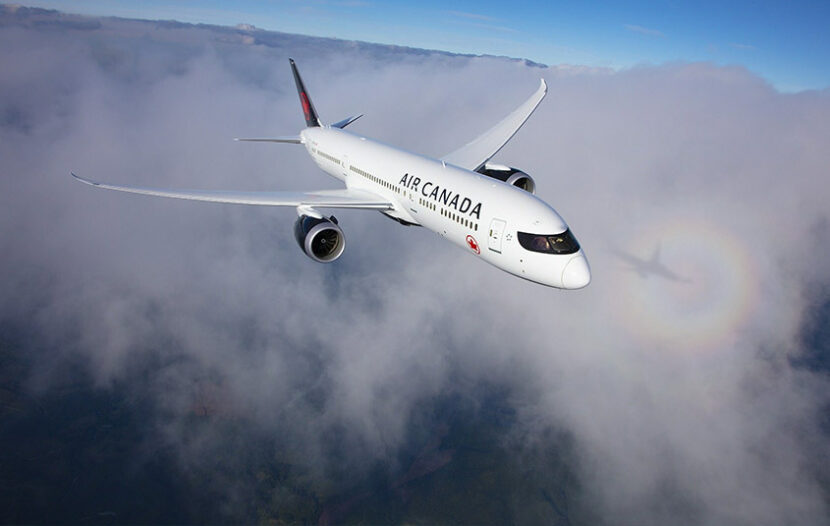MONTREAL — Air Canada reported a loss of $81 million in its first-quarter as its operating revenue rose seven per cent from a year ago.
The airline says the loss amounted to 22 cents per diluted share for the quarter ended March 31.
The result compared with a profit of $4 million in the same quarter last year when it also reported a loss of three cents per diluted share.
Operating revenue totalled $5.23 billion, up from $4.89 billion in its first quarter of 2023.
On an adjusted basis, Air Canada says it lost 27 cents per diluted share in its latest quarter compared with an adjusted loss of 53 cents per diluted share in the same quarter last year.
In its outlook, the airline says it plans to increase its capacity measured by available seat miles in the second quarter of this year by about seven per cent compared with a year ago.
Despite the loss, the airline remains optimistic for a strong year ahead. Said Michael Rousseau, President and Chief executive Officer: “Air Canada’s solid first quarter results position our airline for a strong performance in 2024. We had operating revenues of $5.2 billion in the quarter, up $339 million from last year. Adjusted EBITDA grew by $42 million year over year to $453 million. I thank our employees for their hard work taking care of our 11 million customers and transporting them safely throughout the quarter. I also commend them for improving our operations, notably a 13 percentage-point increase in system-wide, on-time arrivals, preparing us for an anticipated busy summer period.
“”We are confident in our ability to deliver on our full year 2024 guidance. As we look toward the summer, we see a continued healthy demand environment, and our customers will have a wide range of exciting travel options across Europe, Asia, and North America, for their summer holiday planning.”
Rousseau also noted that in the quarter, Air Canada generated over $1 billion of free cash flow, mainly resulting from cash generated from operating activities, and that its net debt-to-adjusted EBITDA (earnings before interest, taxes, depreciation, and amortization) ratio fell to 0.9 at the quarter’s end.
“We also made further progress in our strategy to deleverage the balance sheet by reducing gross debt. Our accomplishments in this regard have been recognized by the credit rating agency community, more recently with S&P Global Ratings’ latest upgrade to ‘BB’ from ‘BB-‘ at the end of April. For the full year 2024, we remain certain of our ability to generate significant free cash flow. Our strong balance sheet will serve as the foundation on which we will grow our airline through investments in our world-class global network and the deployment of capital allocation strategies that will create sustainable, long-term value, for all of Air Canada and its shareholders,” he said.
Air Canada is in the process of arranging lease agreements for some additional Boeing 737 MAX 8 aircraft that would be scheduled for delivery in 2024 and enter service in 2025, upon completion of reconfiguration.
With file from The Canadian Press

